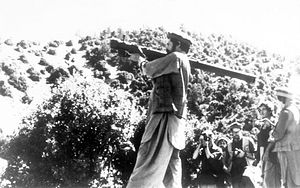The Soviet Union’s involvement in Afghanistan lasted almost an entire decade, from 1979 to 1989. Estimates over the exact amount of casualties during the brutal nine-year conflict vary, but the general consensus among scholars is that at least one million civilians were killed, in addition to 90,000 Mujahedin fighters, 18,000 Afghan troops, and 14,500 Soviet soldiers.
Yet, to this day there is controversy over what forced the Soviets to withdraw its combat troops from Afghan soil in 1989. For many former American Cold War hawks the answer is clear: The Stinger surface-to-air-missile (SAM).
As Congressman Charlie Wilson told the Washington Post in 1989: “Once the Stinger made their helicopters useless, that put the Russians on foot against the Mujahedin and there’s no one on Earth who can fight the Mujahedin on Foot.” This sentiment was also widely propagated in the American media during the conflict. For example, in an influential 60 Minutes Special by CBS News on Afghanistan in October 1988 the host announced: “The Stinger is generally credited with having won the war for the Mujahedin.”
In the first decade of the 2000s, the Hollywood movie Charlie Wilson’s War further trumpeted this view and credited Charlie Wilson’s determination to increase the funding of “Operation Cyclone” – a secret CIA program to arm and finance the Afghan resistance – and supply the Mujahedin with anti-aircraft weapons with bringing down the Soviet Union and ending the Cold War. (Wilson, in fact, did not favor the Stinger SAM at the beginning of his involvement in the covert operation.)
Read the rest of this article in the July Issue of The Diplomat Magazine, a monthly digital publication packed with exclusive articles and available for download in the Apple App Store,Google Play, or via Amazon.

































